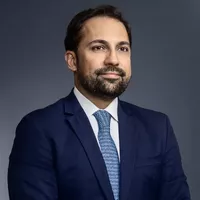- in United States
- in United States
- within Wealth Management and Intellectual Property topic(s)
The Brazilian Supreme Court (Supremo Tribunal Federal - STF) has decided by majority vote that landfills being installed or already operating or expanding in Permanent Preservation Areas (Áreas de Preservação Permanente - APPs) can operate until the end of their useful lives as specified in their environmental licenses or concession contracts.
Background
The STF ruled in response to a motion of clarification filed by the Attorney General's Office (AGU) in Declaratory Action of Constitutionality (Ação Declaratória de Constitucionalidade - ADC) No. 42 and Direct Actions of Unconstitutionality (Ações Diretas de Inconstitucionalidade - ADIs) No. 4901, No. 4902, No. 4903 and No. 4937, all related to the validity of provisions in Federal Law 12.651/2012 (Forest Code).
Responding to a 2018 STF ruling that the presence of landfills in APPs was unconstitutional, the AGU argued that approximately 80% of Brazilian landfills are partially located in APPs; therefore, a sudden shutdown of these landfills could result in a return to illegal and environmentally harmful practices, such as the creation of garbage dumps. Justice Luiz Fux, the rapporteur of the cases, emphasized that the landfills in these areas must be gradually deactivated as solid waste treatment systems compatible with environmental preservation are implemented.
Requirements
The STF decision establishes that landfills must comply with the deadlines and terms of operation set forth in the environmental license, concession contract, or legislation that authorizes their operation. The decision also specifies that after a landfill's closure it will not be necessary to remove the deposited material/solid waste before the landfill will be reforested, which will mitigate environmental degradation. Justices Edson Fachin, Cármen Lúcia, and Rosa Weber (who presented her vote in a virtual session prior to her retirement) were only in disagreement regarding the timeline, as they argued that landfill activities in APPs should cease within 36 months.
Clarification
Regarding environmental compensation for Legal Reserves (areas that are specially protected and mandatory in rural properties) located in the same biome, the STF unanimously accepted the AGU's motion of clarification to replace the term "ecological identity" with "biome," concluding that the term "ecological identity" lacks support in scientific literature and legislation and that there are no available geographical data for mapping areas of the same "ecological identity."
The use of the term "biome" ensures the restoration of landfill areas that should have been preserved, and the environmental compensation measures outlined in the Forest Code can produce significant environmental benefits, such as the creation of ecological corridors that span federative units and even cross national borders.
The Environmental, Climate Change, and ESG practice of Tauil & Chequer Advogados, associated with Mayer Brown, is available for further clarifications regarding this topic.
Visit us at mayerbrown.com
Mayer Brown is a global services provider comprising associated legal practices that are separate entities, including Mayer Brown LLP (Illinois, USA), Mayer Brown International LLP (England & Wales), Mayer Brown (a Hong Kong partnership) and Tauil & Chequer Advogados (a Brazilian law partnership) and non-legal service providers, which provide consultancy services (collectively, the "Mayer Brown Practices"). The Mayer Brown Practices are established in various jurisdictions and may be a legal person or a partnership. PK Wong & Nair LLC ("PKWN") is the constituent Singapore law practice of our licensed joint law venture in Singapore, Mayer Brown PK Wong & Nair Pte. Ltd. Details of the individual Mayer Brown Practices and PKWN can be found in the Legal Notices section of our website. "Mayer Brown" and the Mayer Brown logo are the trademarks of Mayer Brown.
© Copyright 2024. The Mayer Brown Practices. All rights reserved.
This Mayer Brown article provides information and comments on legal issues and developments of interest. The foregoing is not a comprehensive treatment of the subject matter covered and is not intended to provide legal advice. Readers should seek specific legal advice before taking any action with respect to the matters discussed herein.




